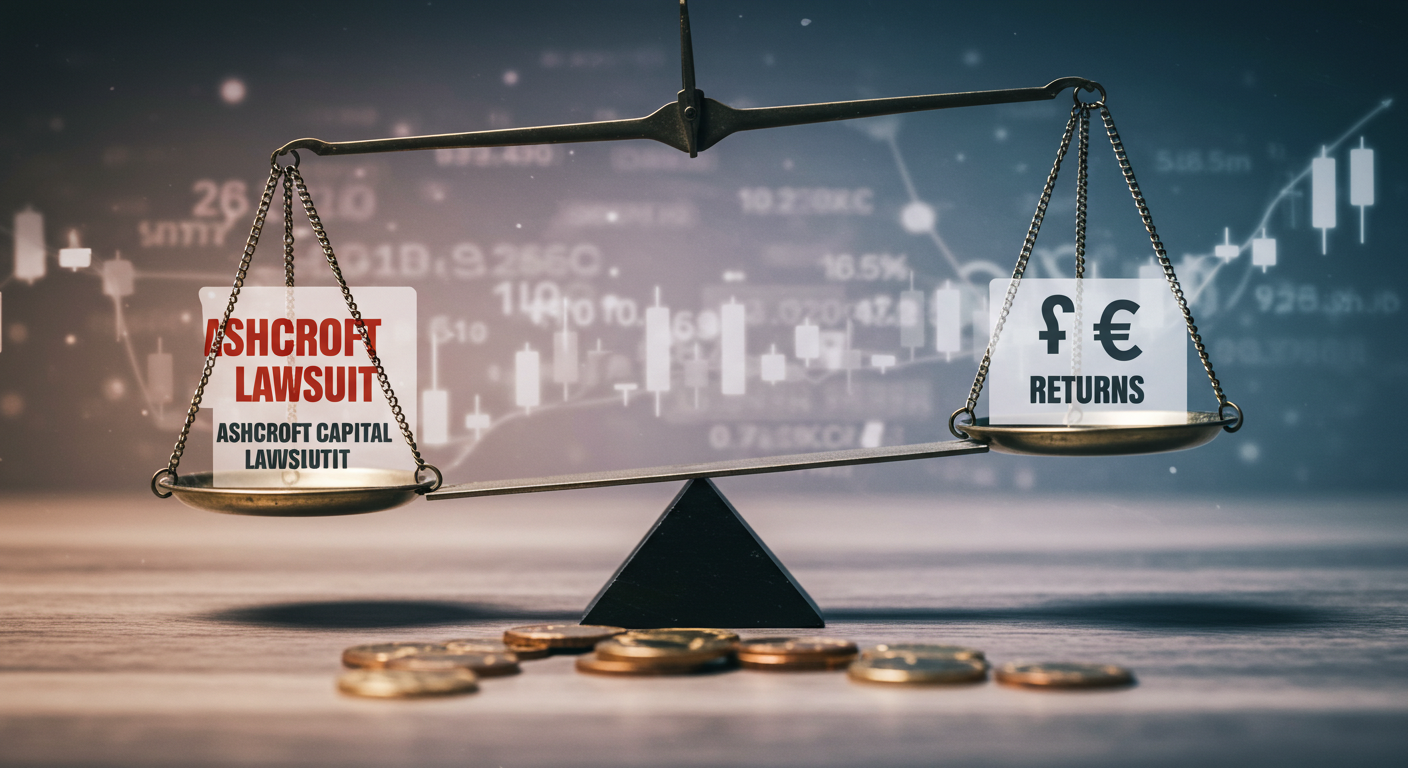In the complex and highly regulated world of real estate investing, even well-established firms can occasionally face legal challenges. Recently, discussions surrounding a potential or rumored Ashcroft Capital lawsuit have sparked curiosity among investors and industry observers alike.
While there is no confirmed or publicly documented lawsuit against Ashcroft Capital at the time of writing, the speculation highlights the importance of understanding how legal disputes may arise in the real estate syndication space, and what protections and processes are in place for investors.
This article takes an objective, educational look at what a lawsuit involving a real estate investment firm like Ashcroft Capital might involve, and how investors can stay informed and protected.
About Ashcroft Capital
Ashcroft Capital is a multifamily real estate investment firm known for acquiring, improving, and managing value-add apartment communities across the United States. The firm, co-founded by Joe Fairless and Frank Roessler, has managed over $2 billion in assets and is considered a major player in the passive real estate investing space.
Ashcroft Capital markets itself as a trustworthy partner for investors seeking consistent cash flow, equity growth, and long-term appreciation through carefully managed apartment investments.
Why Lawsuits Can Arise in Real Estate Syndications
Before diving into any specific legal matters, it’s important to understand that lawsuits in the real estate investment world are not uncommon. Even legitimate and well-run firms may occasionally face legal claims due to:
-
Investor disputes: Disagreements over returns, disclosures, or fund management
-
Contractual breaches: Conflicts with contractors, partners, or service providers
-
Regulatory issues: Non-compliance with SEC regulations or miscommunication around offerings
-
Property-level liability: Personal injury, construction defects, or tenant lawsuits
Therefore, if a firm like Ashcroft Capital were ever named in a lawsuit, it would not necessarily imply wrongdoing—but it would warrant transparency, communication, and due diligence by all parties involved.
Investor Concerns and Due Diligence
The mention of a potential Ashcroft Capital lawsuit—even if speculative—can understandably raise concerns for passive investors. After all, investing in real estate syndications involves entrusting others with significant capital.
What Investors Should Ask:
-
Has the firm disclosed any legal actions?
Reputable firms include litigation disclosures in offering memorandums or investor communications. -
How is investor capital protected?
Typically, deals are structured with legal entities (LLCs) that limit liability and separate investor funds from firm operations. -
Does the firm carry insurance?
Most professional sponsors carry liability insurance and E&O (errors and omissions) coverage to protect against lawsuits. -
Is the firm registered and compliant?
Firms dealing in securities must follow SEC rules, including offering only to accredited investors and making full disclosures. -
How transparent is the team?
A trustworthy sponsor provides regular updates, audited financials, and open lines of communication.
What Happens When a Real Estate Firm Is Sued?
Let’s explore what typically happens if a firm like Ashcroft Capital were involved in a legal dispute:
Step 1: Filing and Notification
A lawsuit begins when a plaintiff files a complaint and the firm is served legal notice. The firm must respond within a certain period.
Step 2: Investigation and Legal Response
The firm’s legal team investigates the claims, gathers evidence, and may file a motion to dismiss, negotiate a settlement, or proceed to court.
Step 3: Communication with Investors
A reputable firm informs its investors of any material litigation, especially if it affects ongoing projects or potential returns.
Step 4: Insurance and Risk Mitigation
If the lawsuit involves property-level incidents or contractual issues, insurance may cover damages or legal costs.
Step 5: Resolution
Lawsuits may end in settlement, arbitration, or court ruling. The outcome can influence future operations, but many are resolved without major disruption to investor returns.
Ashcroft Capital’s Track Record and Reputation
As of the latest public information, Ashcroft Capital maintains a strong reputation in the real estate investment community. The firm has completed dozens of successful deals and consistently publishes content and investor education materials through its co-founder Joe Fairless, host of the “Best Ever Real Estate Investing Advice” podcast.
Ashcroft is known for:
-
Clear investor communications
-
Detailed underwriting and due diligence
-
Focus on Class B/C multifamily repositioning
-
Transparent reporting and investor portals
These practices are part of what has helped the firm build trust among thousands of passive investors over the years.
Learning From Industry Precedents
While Ashcroft Capital has no confirmed lawsuits on record, other real estate firms have faced legal scrutiny in recent years—mostly due to mismanagement, over-promising returns, or lack of proper disclosure.
These precedents emphasize the importance of:
-
Reading PPMs (Private Placement Memorandums) carefully
-
Understanding risk disclosures
-
Evaluating the experience and ethics of general partners
-
Ensuring the firm uses third-party audits and licensed custodians when appropriate
In many cases, lawsuits occur when communication breaks down or when investor expectations don’t align with actual results.
What Should You Do If You Hear About a Lawsuit?
If you’re an investor and hear about a potential Ashcroft Capital lawsuit (or any other firm), follow these steps:
-
Verify the Information – Check official court records, the firm’s website, or contact their investor relations team.
-
Review Your Investment Agreement – Understand your rights, protections, and exposure.
-
Stay Calm and Informed – Legal matters can take time and don’t always impact asset performance directly.
-
Seek Legal Advice if Needed – If your capital is involved, consider consulting a securities or investment attorney.
Final Thoughts
The real estate investment world, particularly in multifamily syndications, is built on relationships, transparency, and trust. A mention or rumor of an Ashcroft Capital lawsuit should be approached with facts, context, and level-headed due diligence.
As with any investment, it’s essential to do your homework—not just on the deal, but on the people behind it. So far, Ashcroft Capital has shown a strong track record and proactive investor engagement. If any legal developments were to arise in the future, a firm of its size and visibility would likely address it publicly and responsibly.

